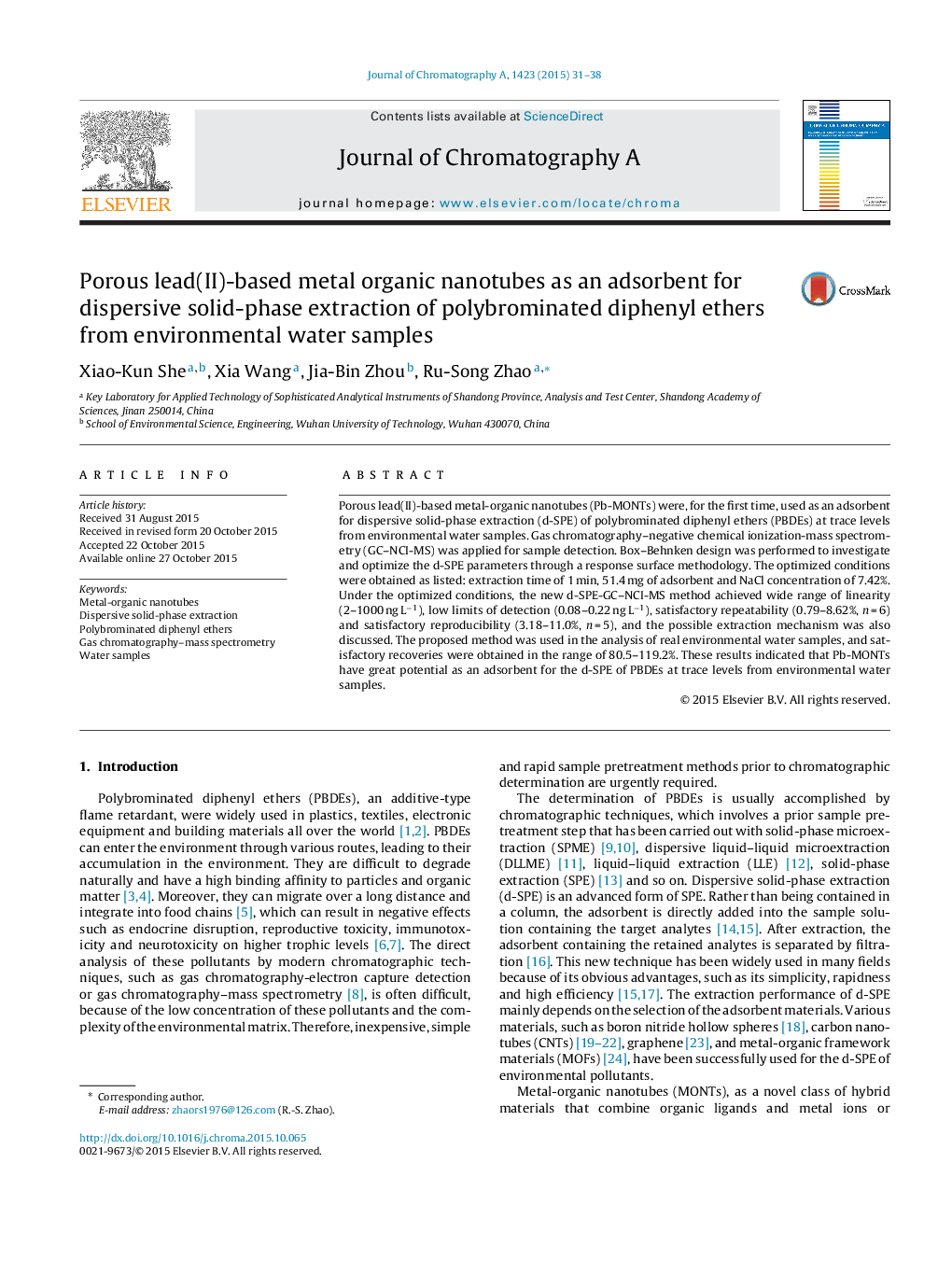| Article ID | Journal | Published Year | Pages | File Type |
|---|---|---|---|---|
| 7610963 | Journal of Chromatography A | 2015 | 8 Pages |
Abstract
Porous lead(II)-based metal-organic nanotubes (Pb-MONTs) were, for the first time, used as an adsorbent for dispersive solid-phase extraction (d-SPE) of polybrominated diphenyl ethers (PBDEs) at trace levels from environmental water samples. Gas chromatography-negative chemical ionization-mass spectrometry (GC-NCI-MS) was applied for sample detection. Box-Behnken design was performed to investigate and optimize the d-SPE parameters through a response surface methodology. The optimized conditions were obtained as listed: extraction time of 1 min, 51.4 mg of adsorbent and NaCl concentration of 7.42%. Under the optimized conditions, the new d-SPE-GC-NCI-MS method achieved wide range of linearity (2-1000 ng Lâ1), low limits of detection (0.08-0.22 ng Lâ1), satisfactory repeatability (0.79-8.62%, n = 6) and satisfactory reproducibility (3.18-11.0%, n = 5), and the possible extraction mechanism was also discussed. The proposed method was used in the analysis of real environmental water samples, and satisfactory recoveries were obtained in the range of 80.5-119.2%. These results indicated that Pb-MONTs have great potential as an adsorbent for the d-SPE of PBDEs at trace levels from environmental water samples.
Keywords
Related Topics
Physical Sciences and Engineering
Chemistry
Analytical Chemistry
Authors
Xiao-Kun She, Xia Wang, Jia-Bin Zhou, Ru-Song Zhao,
